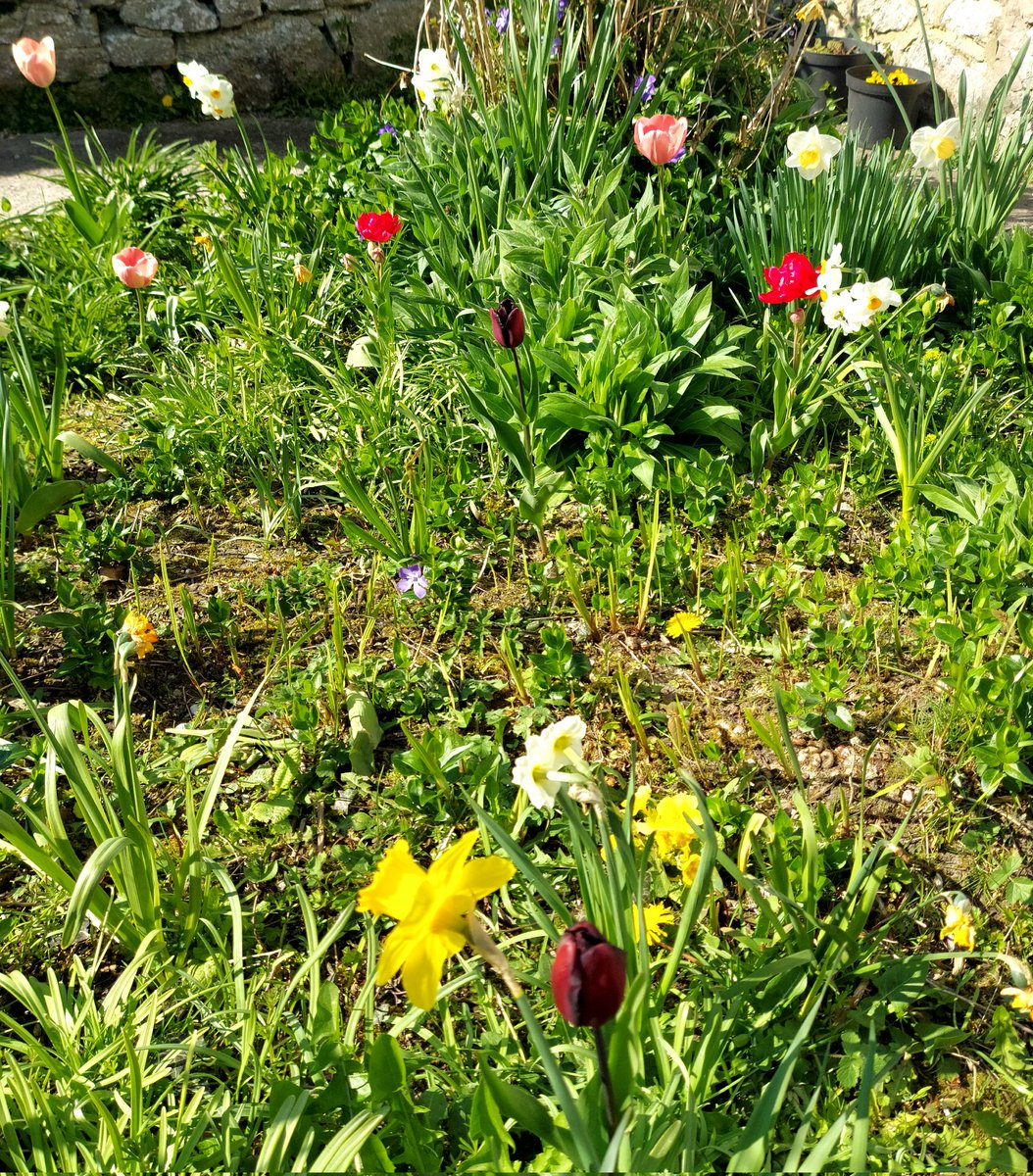
Gwenno Eleri Jones
@mabonlleu
Followers
717
Following
15K
Media
1K
Statuses
7K
Creative Consultant, Co-Chair Art & Education Network Wales. Ymgynghorydd Creadigol, Cyd-Gadeirydd Rhwydwaith Celf & Addysg Cymru @DoWell_uk Consultant
Flintshire, North Wales
Joined March 2015
Taking a moment to enjoy a coffee in the garden before the storms arrive. And breathe. 😊
0
0
2
❤️
We find it so hard to treat ourselves with kindness and compassion but today try treating yourself as you would a good friend. Watch the self narrative change. Feel the warmth of self compassion. Sending love to all souls struggling #Mentalhealth
0
0
0
❤️
Please know that you are not your negative thoughts sometimes our brains get so focused on our anxieties. Today know you are completely enough you deserve healing and you are worthy of your wildest dreams! #Mentalhealth
0
0
1
I got up to hide some chocolate eggs outside for Soffi from the Easter bunny. Tilly's sleeping with a tangle of legs. 😂
0
0
0
Tilly just can't decide where she wants to sleep tonight. 😂❤️
0
0
0
❤️
We all make mistakes, we all fail, we are human. But what makes us stronger, more resilient, is the capacity to learn from those experiences and have the courage to face another day. Please be kind to you celebrate those little wins #Mentalhealth
0
0
0
This ❤️❤️❤️
This....... never underestimate an act of kindness it’s echoes are endless #MentalHealthAwareness #SuicidePrevention
0
0
2
This....... never underestimate an act of kindness it’s echoes are endless #MentalHealthAwareness #SuicidePrevention
2
7
20
❤️
Life can be tricky, messy, devastating but please know that you are strong and one day you will look back and be so proud of yourself for getting through. Sending love to all souls struggling #Mentalhealth
0
0
3
Me: What have you done now! Soffi: I wanted to be a lime. Give me strength. 🤣🟩🟢💚🤣
2
0
4
❤️
Never underestimate the power of kindness to transform someone’s day. A smile, a listening ear, a compassionate voice can heal in ways that nothing else can. Giving the profound but much needed message you are not alone. #Mentalhealth
0
0
0
❤️
The world today can seem pretty bleak, but if we look hard enough, we can still see the light. The kindness of strangers, the blooming of spring flowers, acts of compassion. Be a person who spreads the light today.Sending love to all souls struggling #Mentalhealth
0
0
0
It's Mr Jones' birthday today. He's the most wonderful man. He's put up with me for over 30 years! Love him. ❤️
0
0
0
❤️
“Courage does not always roar. Sometimes courage is the quiet voice at the end of the day saying, ‘I will try again tomorrow.” If you’re having a bad day, it’s important to let the day come to an end so that you can start anew on the next day. #Mentalhealth
0
0
0
My new little friend that now lives on my desk. Say hello to Nelly. She makes me smile. 😊
0
0
1
🥰
Life is magical even if some days it’s harder to see it. The more we look for the good things in our lives the more we programme our mind to see them. So today make time for those small moments of magic.there is always a glimmer of something to be grateful for #Mentalhealth
0
0
0
































